Guest speakers
COS | Cataract | Cornea | Glaucoma | International ophthalmology | Neuro-ophthalmology | Oculoplastics | Pathology | Pediatrics | Retina | Uveitis | Vision rehabilitation
COS INVITED SPEAKER
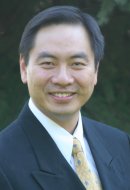 Peter Lin, MD Peter Lin, MD
Dr. Lin started his studies in the Faculty of Science and Engineering at the University of Toronto, where he also earned his medical degree. Currently, he is the director of Primary Care Initiatives at the Canadian Heart Research Centre. He continues to be a lecturer and speaker and run two busy family practices in Toronto. In 2013, he gave over 100 lectures on various topics. Currently, he is the health columnist for CBC Radio, which is heard across Canada. He has also been the guest editor for Focus on Cardiology and a consultant for Perspectives in Cardiology, and was on of the editorial board for The Canadian Alzheimer Disease Review. Dr. Lin has been chair of the Dementia Congress in the United States for 4 years. He was also on the editorial board of Pri-Med Institute and associate editor for the Elsevier WebPortal - PracticeUpdate Primary Care. In 2011, Dr. Lin received a teaching award from the College of Family Physicians of Canada. His goal is to take knowledge out of the research journals and put it back into the hands of the people who can apply it on a daily basis.
CATARACT
 Peter Barry, FRCS Peter Barry, FRCS
The Eye Clinic, Dublin, Ireland
Dublin, Ireland
Mr. Barry has recently retired as consultant ophthalmic surgeon at the Royal Victoria Eye & Ear Hospital and St Vincent's University Hospital, Dublin, Ireland. Mr Barry was the chair and originator of the ESCRS Study on Preve
nting Postoperative Infection following Cataract Surgery, which resulted in the widespread use of intraocular antibiotics after cataract surgery. Mr Barry is the immediate Past President of the European Society of Cataract and Refractive
Surgeons and has been an ESCRS Board Member since 1989.
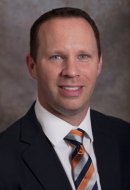 Brandon Ayres, MD Brandon Ayres, MD
Wills Eye Institute
Philadelphia
Dr. Ayres is part of the Cornea Service at Wills Eye Institute. He is assistant surgeon at Wills Eye Institute and
an instructor at Jefferson Medical College, Thomas Jefferson University. He attended Robert Wood Johnson Medical School in New Brunswick, NJ, for his medical education. His internship was at Presbyterian Medical Center, part of the University of Pennsylvania, and was followed by a residency at New Jersey Medical School, where he later served as chief resident.
After a fellowship in cornea, external disease, and refractive
surgery at Wills Eye Institute, Dr. Ayres joined the institute's Cornea Service as an assistant surgeon and has been a part of Ophthalmic Partners since 2007. He currently has staff privileges at Wills Eye Hospital, Thomas Jefferson University Hospital, Lankenau Hospital, and Vitua Health System in South Jersey.
Dr. Ayres is an active participant in resident and fellow education and in clinical research. In his first year as an attending on the Cornea Service, he became the youngest recipient of the Golden Apple Award at Wills Eye. He continues to lecture on the nationally and internationally at numerous academic
conferences. One of his publications was selected as a “Best of Session” at
the American Academy of Ophthalmology for 2013.
Dr. Ayres is board certified in ophthalmology and specializes in all forms of corneal transplantation including full thickness corneal transplants, Descemets stripping endothelial keratoplasty (DSEK), deep anterior lamellar keratoplasty
(DALK), and keratoprosthesis. He was the first person at Wills
Eye Hospital to perform Descemets’ membrane endothelial keratoplasty (DMEK).
He also has an interest in repair of traumatic eye injuries and anterior segment repair. Dr. Ayres performs all types of refractive and cataract surgery including LASIK, phakic lens surgery for myopia, and multifocal intraocular lenses. As a corneal specialist, Dr. Ayres also treats all forms of infectious diseases of the eye and ocular surface disease (dry eye).
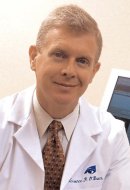 Terrence P. O'Brien, MD Terrence P. O'Brien, MD
Bascom Palmer Eye Institute
Miami
Dr. O’Brien was in his early 20s when
he made his first major contribution to the field of
ophthalmology. Recognizing that treatment for people
with eye infections lagged far behind treatment for
people with systemic infections, he began testing
new antibiotics as eye drops, eventually helping to
develop several treatment. His work had
impact around the world.
Today, Dr. O’Brien is one of the
world’s leading experts in the fields of refractive surgery and ocular infectious disease. He joined Bascom
Palmer Eye Institute’s medical staff in October 2005
after 15 years at the Wilmer Eye Institute of John
Hopkins University School of Medicine in Baltimore. A
professor and researcher, he holds the Charlotte Breyer
Rodgers Distinguished Chair in Ophthalmology and is
director of the Refractive Surgery Service at Bascom
Palmer Eye Institute at Palm Beach Gardens.
At the Wilmer Eye Institute, O’Brien was the Tom
Clancy Professor of Ophthalmology and director of
Refractive Surgery and Ocular Infectious Diseases.
O’Brien had conducted a refractive surgical procedure
on Clancy, one of the best-selling authors of his gener-
ation, that successfully corrected a rare condition that
threatened profound vision loss, and additionally eliminated the need for Clancy’s thick trademark spectacles.
CORNEA
 M. Bowes Hamill, MD M. Bowes Hamill, MD
Dr. Hamill is an associate professor of ophthalmology at the Cullen Eye Institute, Baylor College of Medicine. He is a graduate of the University of North Carolina at Chapel Hill and received his MD degree at Baylor College of Medicine. He completed his ophthalmology residency at Baylor with two additional years of fellowship training: the first at Baylor College of Medicine in ocular infectious disease/microbiology and the second in The Wilmer Institute, Johns Hopkins Hospital, Baltimore, Maryland, in cornea/anterior segment surgery. He is former president of the Texas Ophthalmological Association and former chair of the American Academy of Ophthalmology Eye Health & Public Information Task Force. His research interest includes corneal transplantation, refractive surgery, and anterior segment surgical techniques.
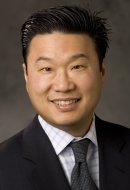 Terry Kim, MD Terry Kim, MD
Professor of Ophthalmology
Duke University School of Medicine
Director of Fellowship Programs
Cornea and Refractive Surgery Services
Duke University Eye Center
Dr. Kim received his medical degree from Duke University School of Medicine and completed his residency and chief residency in ophthalmology at Emory Eye Center. He continued with his fellowship training in cornea, external disease, and refractive surgery at Wills Eye Hospital. He was then recruited to Duke University Eye Center, where he serves as principal and co-investigator on a number of research grants from the National Institutes of Health and other institutions.
Dr. Kim's academic accomplishments include his extensive publications in the peer-reviewed literature, which include over 200 journal articles, textbook chapters, and scientific abstracts. He is also author and editor of two well-respected textbooks on corneal diseases and cataract surgery. Dr. Kim has delivered over 200 invited lectures both nationally and internationally. He has been the recipient of the Achievement Award and the Senior Achievement Award from the American Academy of Ophthalmology (AAO). His clinical and research work has earned him honours and grants from the National Institutes of Health, Fight for Sight/Research to Prevent Blindness, Heed Ophthalmic Foundation, Alcon Laboratories, and Allergan. Dr. Kim is also continually listed in Best Doctors in America, Best Doctors in North Carolina, and America's Top Ophthalmologists. He has also been voted by his peers as one of the 250 most prominent cataract and intraocular lens surgeons in the country by Premier Surgeon, as one of the "135 Leading Ophthalmologists in America" by Becker's ASC Review, as well as one of the "Top 50 Opinion Leaders" by Cataract and Refractive Surgery Today.
Dr. Kim serves on the Governing Board for the American Society of Cataract and Refractive Surgery, as chair of the Cornea Clinical Committee, on the Annual Program Committee for the AAO, and on the Board of Directors for the Cornea Society. He was recently inducted into the International Intra-Ocular Implant Club and is consultant to the Ophthalmic Devices Panel of the Food and Drug Administration. Dr. Kim also sits on the editorial board for several journals, including Cornea, Journal of Cataract and Refractive Surgery, Ocular Surgery News, Eyeworld, Cataract & Refractive Surgery Today, Premier Surgeon, Review of Ophthalmology, Advanced Ocular Care, and Topics in Ocular Antiinfectives.
GLAUCOMA
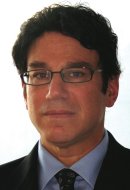 Robert N. Weinreb, MD Robert N. Weinreb, MD
Distinguished Professor and Chairman of Ophthalmology
Morris Gleich Chair
Director, Shiley Eye Center
Director, Hamilton Glaucoma Center
University of California San Diego
A graduate of Harvard Medical School, Dr. Weinreb is the Distinguished Professor of Ophthalmology and chairman of the Department of Ophthalmology at the University of California, San Diego. He also holds the Morris Gleich Chair and is director of both the Shiley Eye Center and the Hamilton Glaucoma Center. With collaborators at the Hamilton Glaucoma Center and throughout the world, Dr. Weinreb's innovative glaucoma research has ranged from the front to the back of the eye, from the eye to the brain, and from the laboratory to the clinic. Dr. Weinreb has served as president of the Association for Research in Vision and Ophthalmology, the World Glaucoma Association, and the American Glaucoma Society. Currently, he is president of the American Glaucoma Society Foundation and of the Pan American Glaucoma Society. Dr. Weinreb has been the recipient of numerous prizes and awards. In October 2012, his h-factor (for impact) of 81 was cited as the highest in all ophthalmology. Dr. Weinreb has trained more than 130 postdoctoral fellows in glaucoma, many of whom hold distinguished academic positions throughout the world.
 Keith Barton, MD, FRCP, FRCS, FRCOphth Keith Barton, MD, FRCP, FRCS, FRCOphth
Consultant Ophthalmologist, Moorfields Eye Hospital
Honorary Reader, Department of Epidemiology, Institute of Ophthalmology, University College London
Keith Barton is a glaucoma specialist whose research interests include the surgical management of glaucoma, specifically secondary glaucoma and the use of aqueous shunt devices, and the management of cataract in glaucoma.
INTERNATIONAL AND PUBLIC HEALTH OPHTHALMOLOGY
 D. Hunter Cherwek, MD D. Hunter Cherwek, MD
Dr. Cherwek is the medical director of strategic markets for Alcon Laboratories and lives in Beijing, China. He is a graduate of the University of the North Carolina at Chapel Hill and received his MD degree at Duke University School of Medicine. He completed his ophthalmology residency at Emory University where he served as chief resident. After completing his residency, he spent 6 years with ORBIS International as a staff ophthalmologist and medical director on board the DC-10 Flying Eye Hospital; during this time, he worked in over 25 countries. His research and career interests include international blindness prevention programs, distance learning, telemedicine, and surgical training.
NEURO-OPHTHALMOLOGY
 Byron L. Lam, MD Byron L. Lam, MD
Dr. Lam is professor and medical director of neuro-ophthalmology and visual physiology at the Bascom Palmer Eye Institute, University of Miami. He completed residency at the University of Iowa, a neuro-ophthalmology fellowship at Bascom Palmer Eye Institute, and a fellowship in hereditary retinal degeneration and electrophysiology at the University of Illinois Eye and Ear Infirmary. Dr. Lam is a clinical scientist with over 140 peer-reviewed publications in the areas of neuro-ophthalmology, hereditary retinal disease, and ophthalmic epidemiology. He has a particular interest in translational research and has participated in numerous clinical trials. He has received numerous honours including the American Academy of Ophthalmology senior achievement award. Dr. Lam is the author of the textbook Electrophysiology of Vision: Clinical Testing and Applications published by Taylor and Francis in 2005.
OCULOPLASTICS
 Geoff Rose, BSc MBBS MS DSc MRCP FRCS FRCOphth Geoff Rose, BSc MBBS MS DSc MRCP FRCS FRCOphth
Moorfields Eye Hospital, London, United Kingdom
PATHOLOGY
 Ben J. Glasgow, MD Ben J. Glasgow, MD
Jules Stein Eye Institute, Los Angeles
Dr. Glasgow holds joint appointments as the Edith and Lew Wasserman Professor in the Department of Ophthalmology at the Jules Stein Eye Institute, and Professor of Pathology and Laboratory Medicine, at the University California at Los Angeles. He directs the Ophthalmic Pathology laboratory at the Jules Stein Eye Institute. His research interest focuses on the molecular mechanisms of tear film formation, a project which has been generously and continuously funded by the National Eye Institute. Dr. Glasgow’s laboratory has pioneered the
technique of site directed tryptophan fluorescence for elucidation of protein structure in solution. His work interrogates mechanisms and functions of specif
ic proteins in ocular surface diseases particularly dry eye disease. The major protein under study is tear lipocalin, which is the dominant lipid binding protein in tears. It is hoped that the work will have application to other
transporters of small molecules throughout the body. He has published over 150 original scientific articles.
PEDIATRICS
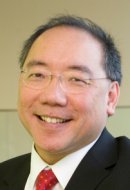 Professor Sir Peng T. Khaw, PhD FRCP FRCS FRCOphth FSB FCOptom FRCPath FARVO
FMedSci Professor Sir Peng T. Khaw, PhD FRCP FRCS FRCOphth FSB FCOptom FRCPath FARVO
FMedSci
Moorfields Eye Hospital and UCL Institute of Ophthalmology, United Kingdom
Professor Sir Peng Khaw is professor of Glaucoma and Ocular Healing and a consultant ophthalmic surgeon. He is director of the
UK National Institute for Health Research Biomedical Research Centre in Ophthalmology at Moorfields Eye Hospital and the UCL Institute of Ophthalmology. He is also in research and development at Moorfields Eye Hospital; part of the
Eyes & Vision Programme, UCL Partners Academic Health Science Centre; and immediate past-president of ARVO.
Professor Sir Peng Khaw has developed surgical techniques (Moorfields Safer Surgery System) that have improved the safety and outcomes of anti-metabolite trabeculectomy in children and adults. He has also developed anti-scarring regimens based on laboratory research leading to large international clinical trials. He is currently working on novel drug delivery systems and regenerative therapies using stem cells for optic nerve repair.
He has published over 350 papers, chapters, and books, and helped raise over £85 million for clinical and research facilities, including the world's largest children's eye hospital and national clinical research centre. He and his group have been awarded over 20 prizes and medals including
the 1st ARVO/Pfizer Translational Research Award; Alcon Research Institute Award; Sir Stewart Duke Elder Medal; Lang Medal Royal Society of Medicine; Gold Medal Saudi Ophthalmological Society; Jubilee Medal Swedish Medical Society. He was elected to the British Academy of Medical Sciences and is a National IHR Senior Investigator (one of only 200 in te United Kingdome). He was knighted during the Queen's birthday honours in 2013.
RETINA
 Marco Attilio Eugenio Zarbin, MD, PhD, FACS Marco Attilio Eugenio Zarbin, MD, PhD, FACS
Dr. Zarbin graduated from the MD and PhD programs at the Johns Hopkins University School of Medicine, completed resident and fellowship training at the Wilmer Ophthalmological Institute (1985-1990), and was an assistant chief of service at Wilmer. Dr. Zarbin is chair of the Institute of Ophthalmology and Visual Science, Rutgers New Jersey Medical School (NJMS), and chief of ophthalmology at University Hospital in Newark, N.J. He holds the Alfonse A. Cinotti, MD/Lions Eye Research Chair and co-director of the Ocular Cell Transplantation Laboratory at NJMS. Dr. Zarbin has co-authored 170 peer-reviewed publications, 63 book chapters, 165 abstracts, and one book on age-related macular degeneration. Dr. Zarbin is the editor-in-chief of Translational Vision Science and Technology and is a vice-chair of the Scientific Advisory Board of the Foundation Fighting Blindness. Dr. Zarbin is an ex officio member of the National Advisory Eye Council of NIH. Dr. Zarbin is a member of the American Ophthalmological Society, the Retina Society, the Macula Society, and the Vitreous Society, and he is a past president of the Association of University Professors of Ophthalmology.
 SriniVas R. Sadda, MD SriniVas R. Sadda, MD
Dr. Sadda is professor of ophthalmology at the University of Southern California (USC) Keck School of Medicine and the director of the Doheny Image Reading Center at the Doheny Eye Institute. He is also director of the Medical Retinal Unit and Ophthalmic Imaging Unit at USC.
He received his medical degree from Johns Hopkins University in Baltimore, Maryland. After an internship at the William Beaumont Hospital in Royal Oak, Michigan, he returned to Johns Hopkins University and the Wilmer Eye Institute for an ophthalmology residency as well as neuro-ophthalmology and medical retina fellowships. Dr Sadda's major research interests include quantitative, automated retinal image analysis; retinal substructure assessments; advanced retinal imaging technologies; genotype-phenotype correlative studies; and vision restoration technologies (e.g., stem cells). In pursuit of these interests, Dr. Sadda is or has been the principal investigator on more than 30 trials, including phase III studies of ranibizumab, preservative-free triamcinolone acetonide, and a dexamethasone posterior-segment drug delivery system.
He has more than 190 publications in peer-reviewed journals and over 200 published abstracts. He authored the first edition of the textbook Emerging Technologies in Retinal Disease, as well as11 book chapters. As an invited lecturer, he has given more than 190 presentations around the country and the world. Dr. Sadda also serves as an editorial board member of Ophthalmic Surgery, Lasers & Imaging, Retina, and Ophthalmology. He is an editor of the 5th edition of the Ryan's Retina textbook and also serves as the editor for the electronic edition of this text. In addition, he serves as an ad hoc scientific referee for Investigative Ophthalmology and Visual Science, Archives of Ophthalmology, American Journal of Ophthalmology, Experimental Eye Research, and the Center for Scientific Review at the National Institutes of Health.
Among Dr. Sadda's awards and honours are a Research to Prevent Blindness Physician-Scientist Award, a Senior Honor Award from the American Society of Retina Specialists, an Achievement Award and a Secretariat Award from the American Academy of Ophthalmology, John H. Zumberge Research and Innovation Award, and the Macula Society Young Investigator Award. He has been named to the Best Doctors of America list for several consecutive years.
UVEITIS
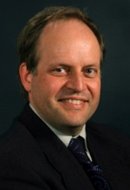 Marc de Smet, MDCM, PhD, FRCSC, FRCOphth Marc de Smet, MDCM, PhD, FRCSC, FRCOphth
Centre for Specialized Ophthalmology,Lausanne, Switzerland
Dr. de Smet is a professor of ophthalmology at the
Academic Medical Center, University of Amsterdam. He is also director of the Retina and Inflammation Unit, Specialized Eye Care in Uveitis and Retina, Lausanne, Switzerland, and part-time director of translational research at Thrombogenics Inc.
VISION REHABILITATION
 Janey L. Wiggs, MD, PhD Janey L. Wiggs, MD, PhD
Vice-chair, Clinical Research in Ophthalmology, Harvard Medical School
Associate Director, Howe Laboratory
Associate Director, Ocular Genomics Institute
Director, Genetics Diagnostic Laboratory
Massachusetts Eye and Ear Infirmary
Dr. Wiggs is a physician scientist at the Massachusetts Eye and Ear Infirmary and Harvard Medical School. She is currently the Paul Austin Chandler associate professor of ophthalmology at Harvard Medical School and the vice chair for clinical research in ophthalmology. She is also the associate director of the Howe Laboratory, an associate director of the Ocular Genomics Institute and the director of the Genetics Diagnostic Laboratory at the Massachusetts Eye and Ear Infirmary.
Dr. Wiggs received her BA and PhD degrees in biochemistry from the University of California at Berkeley and her MD degree from Harvard Medical School. She completed an ophthalmology residency at the Massachusetts Eye and Ear Infirmary and fellowship training in glaucoma and in medical genetics and is board certified in both ophthalmology and medical genetics. Dr. Wiggs’ research program is focused on the discovery and characterization of genetic factors that contribute to the blinding eye disease, glaucoma, and is funded by the National Eye Institute and The March of Dimes Foundation.
Dr. Wiggs currently serves on the editorial boards of Investigative Ophthalmology and Visual Science, JAMA Ophthalmology, Molecular Vision, the Journal of Glaucoma, and Annual Reviews in Vision Science. She is a current member of the scientific advisory boards for the Glaucoma Research Foundation and Research to Prevent Blindness and is a past member of the National Advisory Council of the National Eye Institute.
|

